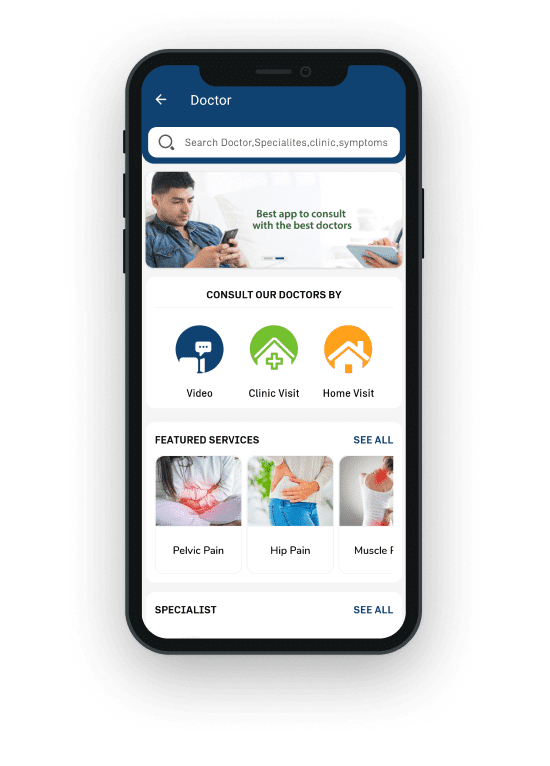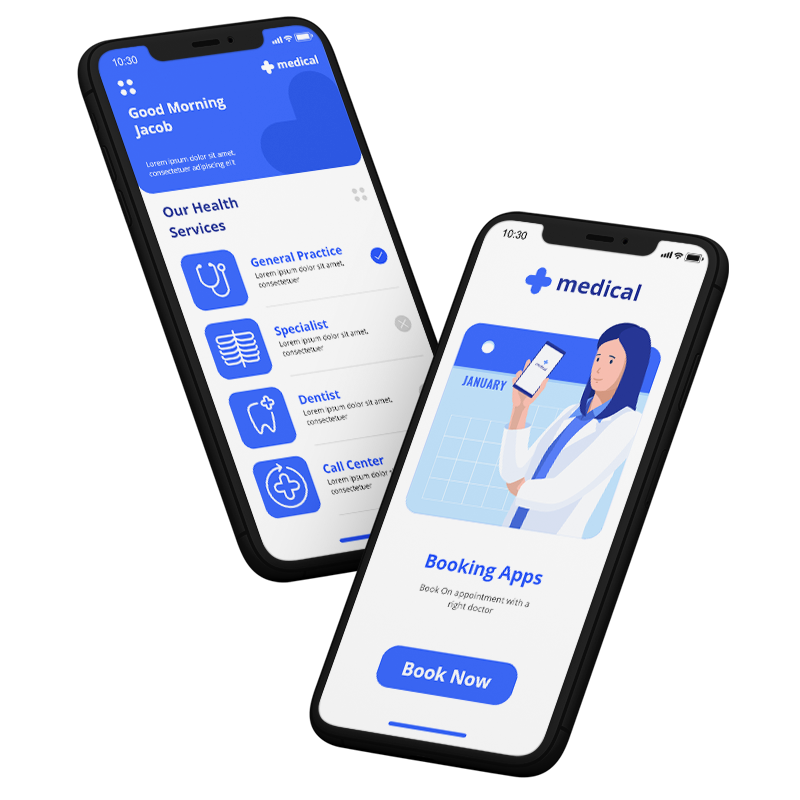A Full Overview to Choosing the very best Mobile App for Clinics in 2024
A Full Overview to Choosing the very best Mobile App for Clinics in 2024
Blog Article
The Future of Healthcare: Why Clinics Required a Mobile App Today
As the medical care landscape remains to advance, centers encounter mounting stress to adjust to client assumptions for higher convenience and ease of access. The integration of mobile applications can act as a crucial strategy for enhancing person involvement and enhancing procedures. By leveraging technology to improve interaction and provide crucial services, facilities not only deal with existing needs but likewise place themselves for future success. However, the ramifications of this change expand past mere functional performance; they might redefine individual partnerships and care delivery in profound ways. What might this change resemble for both clients and centers?
Transforming Individual Assumptions
As the landscape of healthcare evolves, patient expectations are undertaking a significant makeover. Today's people are significantly seeking convenience, accessibility, and individualized treatment. With the increase of technology, particularly mobile applications, individuals currently expect a seamless integration of medical care services into their day-to-days live. They want the capacity to handle visits, access clinical records, and connect with doctor through their smart devices, showing a change in the direction of a more positive method to health and wellness monitoring.
Moreover, individuals are becoming extra educated and equipped, typically investigating therapies and problems on-line before examinations. This increased understanding is combined with a demand for openness in health care processes, consisting of cost price quotes and therapy options. Therefore, companies are compelled to adapt by embracing digital tools that improve the individual experience.
The expectation for effective and timely interaction has never been higher, with numerous clients taking into consideration responsiveness a critical component of quality care. mobile app for clinics. In this developing landscape, health care organizations should identify these transforming assumptions and take advantage of mobile applications to promote a much more patient-centric technique, making certain that they not just fulfill yet surpass the requirements set by today's informed consumers
Enhancing Patient Engagement

Mobile applications facilitate communication in between patients and health care service providers, making it possible for real-time appointment scheduling, tips for drug adherence, and direct messaging features. These capabilities not only improve comfort but also develop a feeling of liability amongst clients. Mobile apps can supply academic web content tailored to private demands, helping patients better recognize their conditions and therapy choices.
The integration of gamification aspects within medical care apps can additionally motivate individuals to involve in healthy and balanced actions, strengthening favorable way of living changes. Inevitably, enhancing patient engagement with mobile applications leads to improved wellness outcomes, greater patient contentment, and a more collective health care experience.
Simplifying Clinic Operations
Streamlining clinic procedures is crucial for boosting process efficiency and enhancing person navigate to these guys treatment. The application of mobile applications can considerably minimize administrative concerns, allowing doctor to concentrate more on person interactions. By automating visit organizing, patient check-ins, and invoicing processes, centers can reduce wait times and improve overall functional performance.
Mobile applications likewise promote real-time access to client documents, enabling healthcare professionals to make enlightened choices swiftly. This immediacy not just enhances the quality of care however also minimizes the chance of mistakes connected with misplaced or obsoleted information. Additionally, leveraging mobile modern technology sustains a much more orderly method to handling individual follow-ups and therapy strategies, making sure that no crucial steps are neglected.
This permits for timely replenishment and aids avoid disruptions in patient treatment due to equip shortages. By integrating these capabilities into their everyday procedures, clinics can develop an extra efficient and natural setting, eventually leading to enhanced patient end results and contentment.
Improving Communication Channels
Efficient interaction is regularly cited as a foundation of high quality medical care delivery. In today's hectic clinical environment, mobile applications can dramatically boost communication channels between facilities, patients, and medical care suppliers. By incorporating mobile applications into their procedures, facilities can assist in real-time communications, making sure that people receive timely information concerning their appointments, test outcomes, and therapy plans.
Mobile apps additionally encourage people to interact straight with their healthcare teams with safe and secure messaging attributes. This straight line of communication fosters a feeling of interaction and permits immediate information of worries, which can cause better adherence to therapy procedures. Additionally, push notices can remind people of upcoming visits or medication routines, lowering no-show prices and boosting overall wellness outcomes.

Remaining Competitive in Health Care
In a rapidly developing health care landscape, organizations must focus on technology and versatility to keep an affordable edge. The assimilation of mobile applications right into medical care solutions is no longer optional; it is vital for centers intending to enhance client interaction, enhance procedures, and enhance total solution shipment.
As individuals progressively depend on digital platforms for health administration, centers that stop working to embrace mobile technology danger falling behind. A properly designed mobile app can provide features such as consultation scheduling, telemedicine assessments, and accessibility to clinical records, offering patients with ease and fostering loyalty.

Rivals are also investing in mobile remedies, so remaining click to read more ahead needs continual improvement and staying notified concerning technological developments. Centers should not only execute mobile applications but also take part in regular updates and refinements. Inevitably, the successful integration of mobile technology will certainly identify forward-thinking medical care companies and established the criteria for patient-centric treatment in a digital globe.
Conclusion
In conclusion, the assimilation of mobile applications in facilities is necessary to deal with the developing landscape of individual expectations. Eventually, the critical execution of mobile apps represents an important step toward delivering available and personalized health care, thus satisfying the needs of today's equipped individuals.
Ultimately, boosting individual interaction with mobile article applications leads to boosted health and wellness outcomes, greater client contentment, and a much more joint medical care experience.Mobile applications likewise assist in real-time accessibility to person records, enabling medical care professionals to make educated decisions quickly. In today's busy clinical environment, mobile applications can considerably improve interaction channels between centers, clients, and health care suppliers.Mobile applications likewise equip patients to interact straight with their healthcare groups via safe and secure messaging attributes. Inevitably, the tactical execution of mobile apps represents a critical action toward supplying obtainable and customized healthcare, thereby satisfying the needs of today's equipped patients.
Report this page